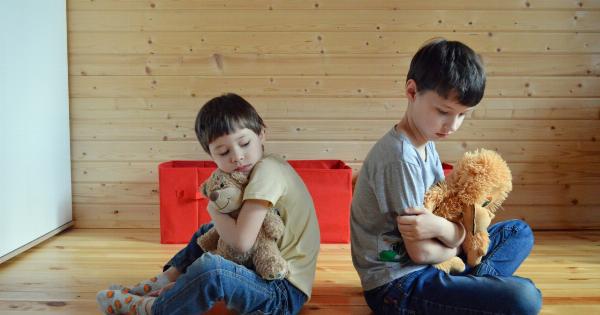Childhood trauma refers to experiences that are emotionally painful and distressing, which can have a lasting impact on a child’s psychological well-being.
It is essential to assess and understand the extent of childhood trauma to provide appropriate support and intervention. Here are ten questions that can help professionals and caregivers in assessing childhood trauma:.
1. Do you have a history of neglect?
Neglect can take various forms, such as physical, emotional, or educational neglect. It involves failing to provide the basic necessities and emotional support that a child needs for healthy development.
Understanding if a child has experienced neglect can provide insights into their trauma history.
2. Have you witnessed domestic violence?
Exposure to domestic violence can be highly traumatizing for children. Witnessing acts of violence between parents or caregivers can have long-lasting effects on their emotional well-being.
It is crucial to assess whether the child has been exposed to domestic violence to gauge the level of trauma they may have experienced.
3. Did you experience physical abuse?
Physical abuse involves intentionally causing physical harm or injury to a child. It can leave visible scars as well as deep emotional wounds.
Assessing if a child has experienced physical abuse helps in understanding the severity of their trauma and its potential impact.
4. Have you been sexually abused?
Sexual abuse is a traumatic experience that involves any inappropriate sexual behavior or activity imposed on a child.
Assessing whether a child has experienced sexual abuse is crucial in determining the extent of their trauma and providing appropriate support and intervention.
5. Have you experienced emotional abuse?
Emotional abuse includes any behavior that undermines a child’s self-worth, emotional well-being, or development. It can involve constant criticism, humiliation, or rejection.
Assessing if a child has experienced emotional abuse helps in identifying the psychological impact of trauma on their overall well-being.
6. Have you witnessed a traumatic event?
Children who witness traumatic events, such as accidents, natural disasters, or acts of violence, can experience significant distress and trauma.
Understanding if a child has been exposed to traumatic events provides insights into their trauma history and allows for appropriate support and intervention.
7. Have you experienced the loss of a loved one?
The loss of a loved one, especially a parent or primary caregiver, can profoundly impact a child’s well-being.
Assessing whether a child has experienced bereavement is crucial in understanding their trauma and facilitating appropriate grief support.
8. Have you been forcibly separated from your primary caregiver?
Forcible separation from a primary caregiver, such as through foster care placement or immigration-related issues, can be highly traumatic for children. This type of trauma can significantly impact their attachment and emotional well-being.
Assessing if a child has experienced such separation is crucial in providing support and intervention.
9. Have you been a victim of bullying?
Bullying can have severe psychological consequences for children, leading to long-term emotional trauma.
Assessing if a child has been a victim of bullying helps in understanding their trauma history and addressing any associated emotional difficulties.
10. Have you experienced any other traumatic events?
Children may have experienced various other traumatic events that are not listed above. It is important to provide an opportunity for children to share their experiences and assess any additional traumas they may have faced.
Conclusion
Assessing childhood trauma is a crucial step in providing appropriate support and intervention.
By asking these ten questions, professionals and caregivers can gain valuable insights into a child’s trauma history and develop strategies to help them heal. It is essential to approach this assessment process with sensitivity, ensuring a safe and supportive environment for the child to share their experiences.
























